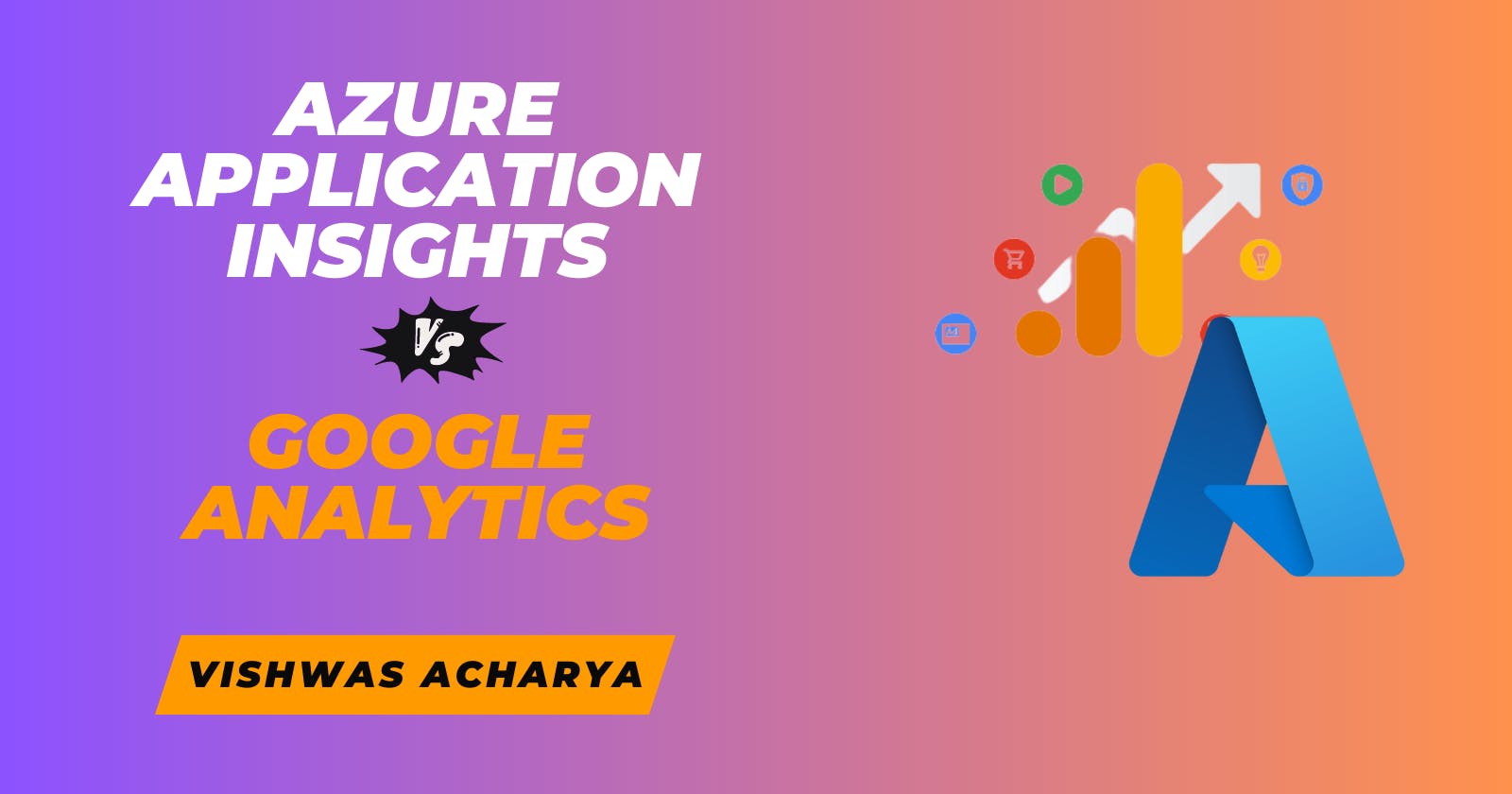In the world of digital analytics, two giants stand tall: Azure Application Insights and Google Analytics. Both platforms offer insights into user behavior, website performance, and other critical data that can drive informed decisions. But when it comes to choosing the best fit for your business or project, how do these two powerhouses compare? In this article, we'll dive deep into the features, strengths, and limitations of Azure Application Insights and Google Analytics, helping you make an informed decision for your analytical needs.
Introduction
As businesses continue to expand their online presence, understanding user behavior and making data-driven decisions is crucial. Azure Application Insights and Google Analytics serve as valuable tools in this pursuit, offering a wealth of data and insights to analyze. In this article, we'll dissect these platforms and help you determine which one aligns better with your analytical needs.
Understanding Azure Application Insights
Azure Application Insights is a powerful application performance management (APM) solution offered by Microsoft. It focuses on providing developers and IT teams with deep insights into application performance, user engagement, and other telemetry data. This tool aids in troubleshooting issues, optimizing performance, and enhancing user experiences.
Exploring Google Analytics
On the other side of the spectrum, Google Analytics is a widely-used web analytics service by Google. It targets marketers, business owners, and website administrators, offering comprehensive insights into website traffic, user demographics, and user interactions. Google Analytics is designed to help businesses understand their audience and optimize their online strategies accordingly.
Feature Comparison
User Interface and Ease of Use
Azure Application Insights boasts a user-friendly interface, primarily catering to developers and technical teams. It offers detailed metrics and custom dashboards, enabling users to monitor key performance indicators effectively. Google Analytics, while also user-friendly, focuses on a broader audience with a more straightforward interface.
Data Collection and Tracking
Both platforms provide robust data collection and tracking mechanisms. Azure Application Insights excels in tracking application-specific metrics, while Google Analytics specializes in web-related data, including pageviews, bounce rates, and click-through rates.
Customization and Flexibility
Azure Application Insights offers extensive customization options, making it a favorite among developers who require tailored insights. Google Analytics, while offering customization to some extent, is more suited for non-technical users seeking easy-to-implement solutions.
Integration with Other Tools
Azure Application Insights seamlessly integrates with other Microsoft Azure services, creating a holistic environment for developers. Google Analytics, meanwhile, can be easily integrated with other Google services, providing a unified experience for businesses using Google's ecosystem.
Use Cases
E-commerce and Online Retail
For e-commerce businesses, Google Analytics shines in providing insights into customer behavior, conversion rates, and product performance. Azure Application Insights, while capable, is better suited for monitoring application performance within an e-commerce platform.
Mobile App Performance
Azure Application Insights stands out for mobile app monitoring, offering detailed insights into app crashes, responsiveness, and user engagement. Google Analytics, while also supporting mobile app tracking, might not offer the same level of depth in app performance analytics.
Enterprise Applications
In enterprise settings, Azure Application Insights plays a crucial role in ensuring the seamless performance of business-critical applications. Google Analytics, with its focus on web data, might not address the complex needs of enterprise applications.
Pros and Cons
Azure Application Insights Pros
Deep application performance insights
Seamless integration with Azure services
Customizable dashboards for technical teams
Azure Application Insights Cons
More developer-oriented, potentially overwhelming for non-technical users
Limited support for web analytics
Google Analytics Pros
Robust web traffic and user behavior insights
User-friendly interface for non-technical users
Well-established within the industry
Google Analytics Cons
Might not cater to the needs of application developers
Limited integration outside the Google ecosystem
Pricing Comparison
Pricing for both platforms varies based on usage and features. Azure Application Insights offers different pricing tiers within the Microsoft Azure framework, while Google Analytics provides both free and premium options.
Choosing the Right Fit
When deciding between Azure Application Insights and Google Analytics, consider your specific needs and target audience. If you're focused on application performance and development, Azure Application Insights could be the better fit. On the other hand, for web analytics and a broader audience, Google Analytics might be the preferred choice.
Conclusion
In the battle of Azure Application Insights vs. Google Analytics, there's no definitive winner. The better choice depends on your unique requirements. Whether you're a developer seeking in-depth application insights or a marketer analyzing user behavior, both platforms offer valuable tools to drive informed decision-making.
By Vishwas Acharya 😉
Checkout my other content as well:
YouTube:
Podcast:
